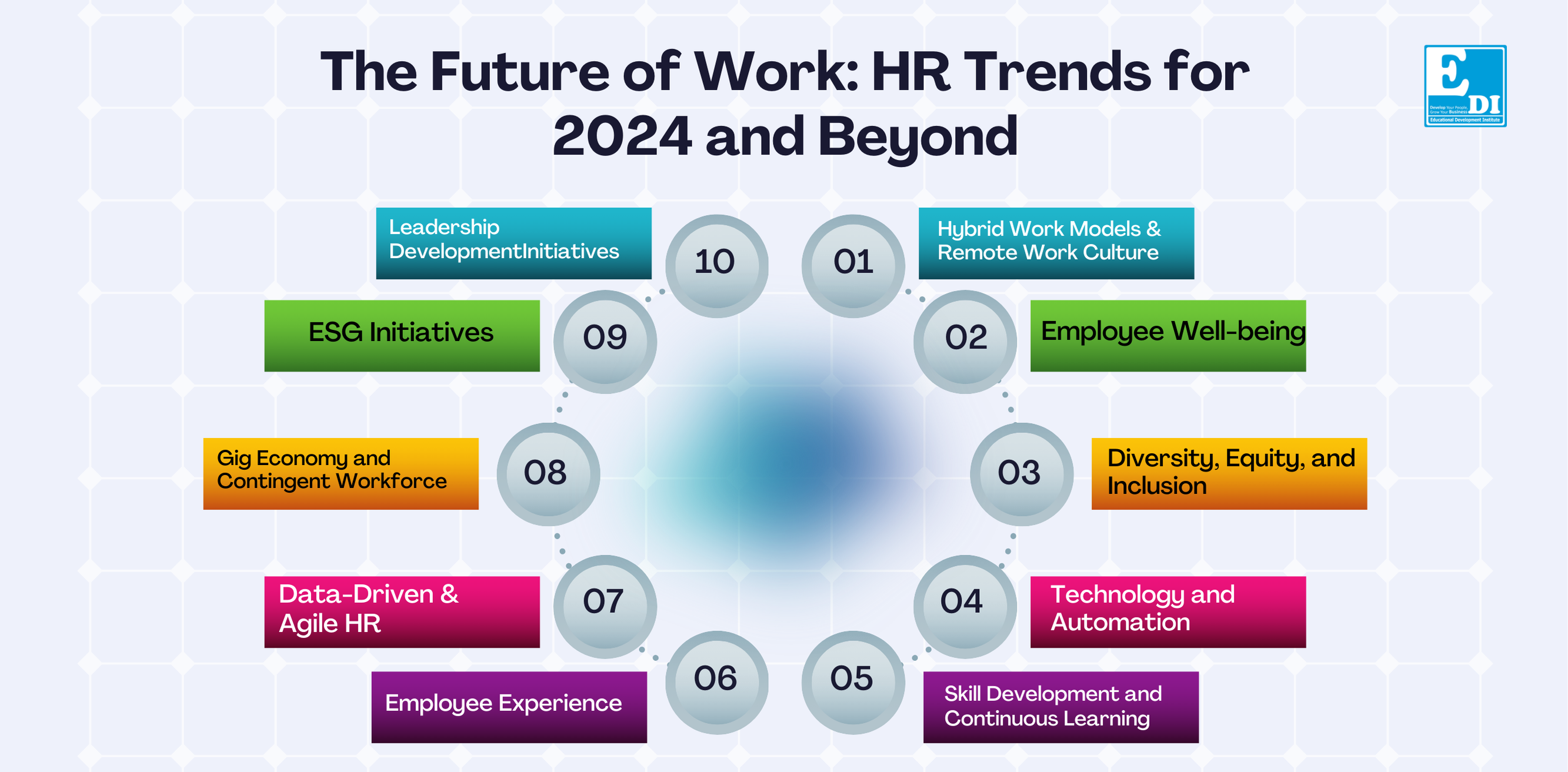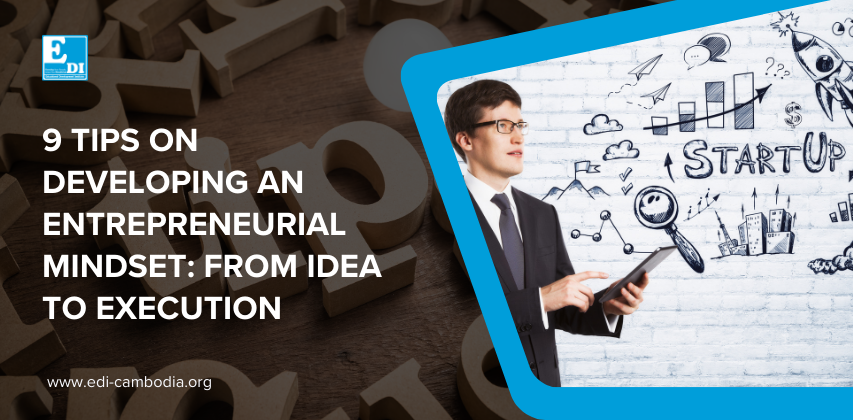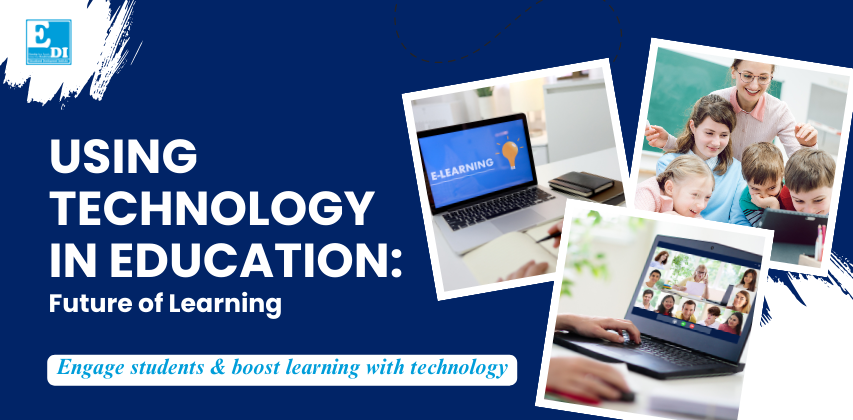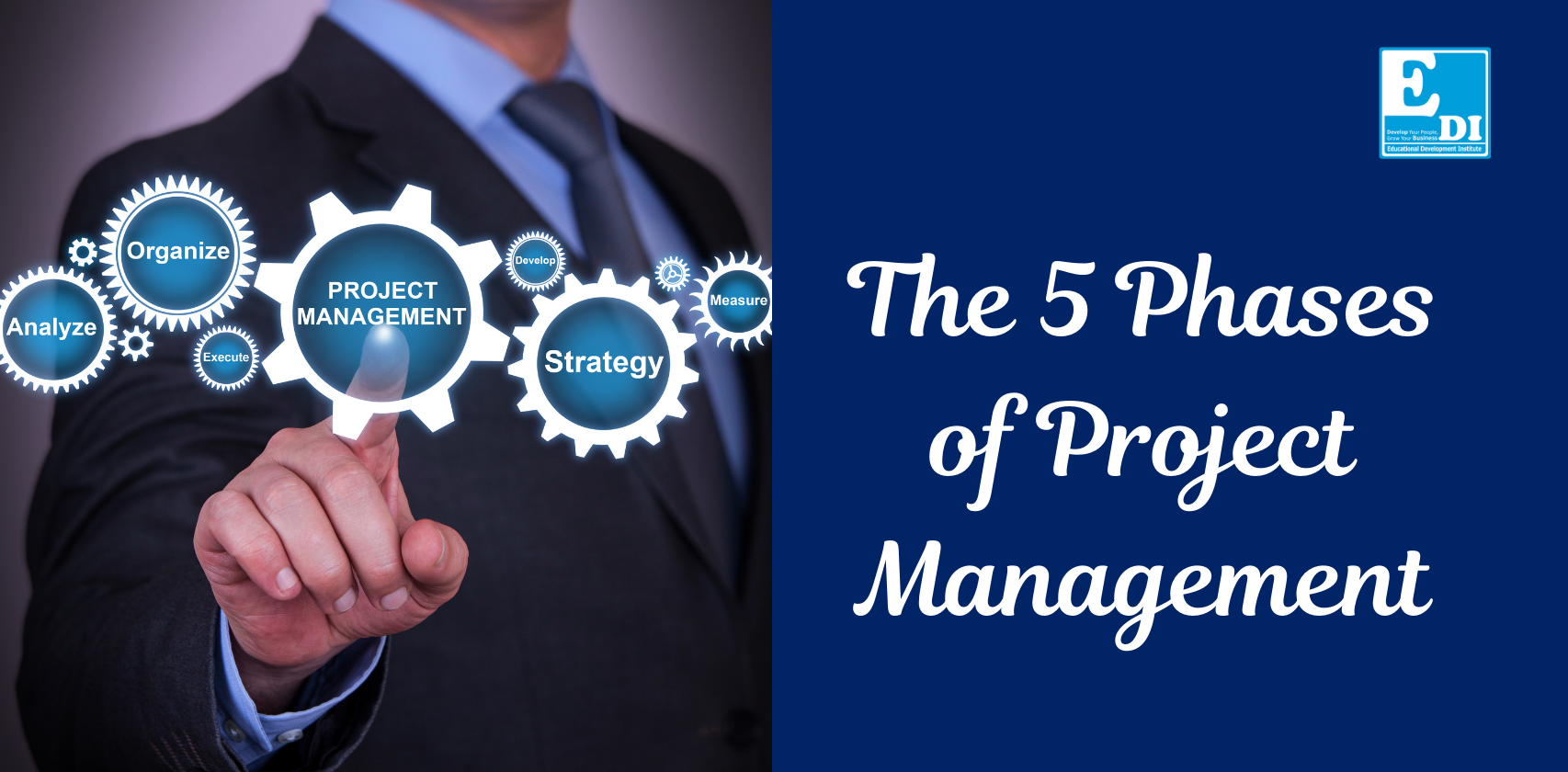The world of work is constantly evolving, and HR departments are at the forefront of change. By embracing new trends,HR can create a more positive and productive work environment for everyone. Some of the top HR trends for 2024:
Hybrid Work Models: The hybrid work model continues to gain traction as organizations find a balance between remote work and in-office presence. Flexibility is key, with employees having the option to choose where and when they work. Companies are investing in digital infrastructure and flexible policies to support this model, recognizing that employees value the autonomy and work-life balance it offers.
Employee Well-being: There is an increased focus on employee well-being, encompassing mental, physical, and financial health. Companies are investing in wellness programs, mental health support, and financial wellness initiatives to ensure holistic support for their workforce. This approach not only boosts productivity but also enhances employee loyalty and reduces turnover.
Diversity, Equity, and Inclusion (DEI): Diversity, Equity, and Inclusion (DEI) remains a critical focus area, with organizations striving to create inclusive workplaces. This includes implementing unconscious bias training, creating diverse talent pipelines, and ensuring equitable pay and opportunities.
Technology and Automation: The use of HR technology and automation tools is on the rise, streamlining processes such as recruitment, onboarding, performance management, and employee engagement. AI and machine learning are being leveraged to enhance decision-making and improve efficiency. For example, AI-driven analytics can help predict employee turnover and identify factors that contribute to job satisfaction, allowing HR to proactively address issues.
Skill Development and Continuous Learning: As the pace of change accelerates, continuous learning and upskilling are becoming essential. Employers are providing opportunities for skill development, offering training programs, and encouraging a culture of lifelong learning. By investing in up-skilling and re-skilling programs for employees ensurestheir workforce remains competitive. E-learning platforms, virtual training sessions, and personalized development plans are becoming standard practice, enabling employees to grow and adapt to new roles.

Employee Experience: Enhancing the employee experience is a priority, with a focus on creating positive and engaging work environments. This includes improving communication, fostering a sense of belonging, and providing opportunities for growth and development. It is a holistic approach to creating a supportive and engaging work environment. Companies are focusing on every touchpoint of the employee journey, from onboarding to exit, to ensure a positive experience. This includes using employee feedback to make improvements, offering career development opportunities, and recognizing and rewarding contributions.
Data-Driven HR: HR analytics are becoming more sophisticated, enabling data-driven decision-making. Data analytics provide deeper insights into workforce trends and behaviors. HR professionals are using data to make informed decisions about hiring, performance management, and employee engagement. This approach helps in identifying patterns and making strategic adjustments to improve organizational outcomes. Organizations are using data to gain insights into employee behavior, predict trends, and make informed strategic decisions.
Agile HR: Adopting agile methodologies in HR processes to respond quickly to changes and enhance flexibility. Agile HR practices involve iterative planning, continuous feedback, and collaborative problem-solving.
Leadership Development: Investing in leadership development programs to build strong, adaptive leaders who can navigate complex challenges and drive organizational success. Modern leaders need to be agile, empathetic, and adept at managing remote teams. Companies are investing in leadership training programs that focus on soft skills, emotional intelligence, and digital literacy to prepare leaders for the future.
Environmental, Social, and Governance (ESG) Initiatives: ESG considerations are increasingly important to employees and stakeholders. Companies are aligning their HR practices with ESG goals, focusing on sustainability, ethical practices, and social responsibility. This includes promoting eco-friendly practices within the workplace, supporting corporate social responsibility initiatives, and ensuring ethical labor practices. Employees increasingly want to work for companies that prioritize sustainability and social responsibility.
Gig Economy and Contingent Workforce: The gig economy is expanding, with more organizations tapping into freelance, contract, and part-time workers. HR departments are adapting to manage a diverse workforce that includes both full-time employees and contingent workers. This involves creating flexible policies that cater to freelance and contract workers, ensuring they feel as valued and supported as full-time employees. This trend also includes developing systems to manage and track the performance of gig workers effectively.
Remote Work Culture: Last but not the least, developing and maintaining a strong remote work culture is vital. This includes fostering virtual collaboration, ensuring effective communication, and building trust among remote teams.
As these trends continue to unfold, the role of HR will become even more pivotal in shaping the future of work. By staying ahead of these trends, organizations can create more dynamic, inclusive, and resilient workplaces that not only attract top talent but also foster a culture of continuous growth and innovation.
At EDI, we are continously striving to provide expert training and consulting services in HUMAN RESOURCES Management; aiming at highly skilled workforce for today's competitive work culture with the integration of latest technological aspects along with fundamental areas of HR. Our HRM courses are designed specially for the new gen HR professionals to be able to cope with the modern workplace requirements. We are also providing customized trainings for clients on various topics as requested and curated as per their organizational needs and requirements. For more information, please contact us at 092 888 955 | 015 728 123, or write to us at director@edi-cambodia.org / marketing@edi-cambodia.org.
Develop Your People, Grow Your Business


.png)



 Primary School Knowledge & Methodology.jpg)





